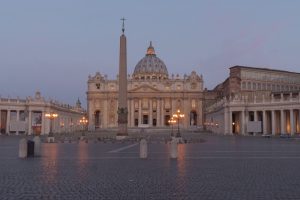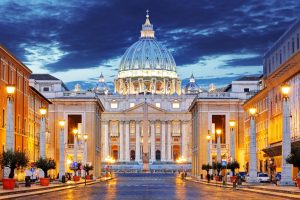
It’s come to that time of year again when the long hours of darkness and wintry weather are diminished by the twinkling lights and shiny tinsel. It’s easy to get caught up in the enthusiasm and community spirit which pervades this festive time of year: plays, songs, warm fires, glinting trees, special offers, Santa and the reindeers, it’s so familiar to us all. The whirlwind that is Christmas seems to start earlier each year, building to a frenzied crescendo of shopping and feasting. It all happens so fast that many people barely have time to reflect on how Christmas is changing, or to ponder over the origins of the festival itself.
Central to Christmas are the two elements of the name – Christ and Mass. The Mass of or for Christ. But the term Christmas is relatively new and not universal, Yule, Navidad, Noel point more towards Nativity than this later rebranding.
Birthdays in general were not favoured or especially marked in the Early Church; they were viewed as a pagan practice and not worthy of celebration. In fact, the early Church favoured the marking of dates of death, especially of martyrs, rather than their birth. Unsurprising in a time when exact dating and universal calendars were in short supply.
The exact date of Christ’s birth was not agreed and was first mooted as December 25 around the second century and then became widely and officially accepted later. There are various ideas as to why this date was selected, none of them definitive. Christmas for many centuries did not carry the same spiritual or religious significance as Easter and Good Friday. All scholars agree that the December 25 date is a later addition with earlier dates being January 6, or even originally amongst some early Egyptian Christians, as May/August. As the Eastern and Western Church struggled to reach agreement on the date of Christ’s birth, the January date was framed as the Feast of the Epiphany and the 12 days in between were titled the 12 days of Christmas.
However, what cannot be avoided, is that the December 25 date is very close to the pagan festival on winter solstice, a day which represented worshipping and recognising the sun. Many scholars say that the sun was simply replaced by a festival honouring the son, in Christian terms.
Whatever the reasons behind the choice of December 25, you can be sure it was not approved or sanctioned by the earliest Christians and only grew in prominence many centuries after the formation of Christianity.
And Christmas continues to evolve and change, even today. Midnight mass is less commonly attended, nativity plays are swapped for winter pantos and new customs such as the Christmas tree and stockings are added all the time.
The gulf between the practice of twinkling lights and online shopping and the true origins of Christmas as a time of prayers and Biblical readings grows wider every year especially as we consider that for centuries, many Christians didn’t mark Christmas at all.
In Islam, Jesusashas been described as a noble prophet of God who came to revive the faith amongst his people. Thus, Muslims and Christians alike greatly honour and revere Jesusas, therefore regardless of the origins of Christmas, the festive season provides an opportunity toreflect and draw inspiration from the teachings of Jesusaswhich were based on love, harmony and tolerance.
More About the Author:
Sarah Ward Khan is an Ahmadi English woman who works as a teacher and has a keen interest comparative religions.




Add Comment